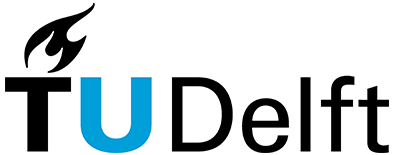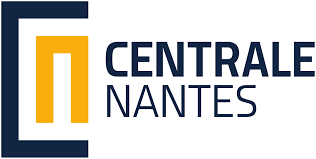VQR 2015-2019: decreto integrativo
È stato pubblicato un decreto di integrazione delle Linee Guida per la Valutazione della Qualità della Ricerca (VQR) 2015-2019. Vi segnaliamo che il termine di pubblicazione dei risultati della VQR 2015-2019 è differito al 15 marzo 2022, fatte salve eventuali ulteriori proroghe disposte in relazione all’emergenza epidemiologica, tenuto in ogni caso conto dell’esigenza di assicurare l’utilizzo dei predetti risultati ai fini del finanziamento delle università e degli enti di ricerca entro il 2022.
Link: DM 11082020 – Integrazione Linee Guida VQR 2015 – 2019
Postdoc position at Delft University of Technology – Optimisation of offshore monopile installation
Applications are welcome for a 21-month postdoc position to investigate the optimisation of the monopiles installation process and to study the dynamic behaviour of soil during pile installation using the physical modelling facilities at TU Delft. The work will include design and implementation of advanced instrumentation for physical modelling studies. Test planning and data interpretation will be carried out in close collaboration with industry experts in the framework of BLUE piling project. Candidates should possess a PhD degree in Civil/Geotechnical Engineering or related areas, proven experience in geotechnical centrifuge testing, preferably including soil-structure interaction problems and dynamic loading, and excellent knowledge of soil mechanics and foundation engineering. Acquaintance with offshore wind geotechnics is also appreciated (but not mandatory).
Full description of the position along with the details on how to apply can be found in the following link: https://www.tudelft.nl/over-tu-delft/werken-bij-tu-delft/vacatures/details/?nPostingId=598&nPostingTargetId=632&id=QEZFK026203F3VBQBLO6G68W9&LG=UK&mask=external
For more information about this vacancy please contact Dr. Amin Askarinejad: A.Askarinejad@tudelft.nl.
The closing date for the applications is August 9th, 2020.
Open Post-Doc positions at Ecole Centrale de Nantes (GeM Laboratory)
Post-doc offers at Ecole Centrale de Nantes (GeM Laboratory), ERC-StG Project “Controlling earthQuakes (CoQuake)”:
1 Post-Doc position in “MULTISCALE NUMERICAL MODELING OF EARTHQUAKE FAULTS” (duration 1 to 2 years). Attached pdf
1 Post-Doc position in “LABORATORY EXPERIMENTS OF EARTHQUAKE CONTROL” (duration 1 to 2 years). Attached pdf
The positions are open and will start upon agreement. Suitable, highly‐motivated candidates should send an application (including a CV, a cover letter describing interests and qualifications related to the offered position and contact details of two reference Professors, all compiled in a single pdf file) to ioannis.stefanou@ec-nantes.fr .
For more details see attached pdfs and http://coquake.eu/index.php/recruitment/ .
Postdoctoral position at Heriot-Watt University (UK)
The Institute of GeoEnergy Engineering, at Heriot-Watt University, Edinburgh, UK, is looking for a postdoctoral researcher to work on a project, funded by UK Natural Environment Research Council (NERC), with a focus on pore-scale numerical modelling of gas transport mechanisms. Details about the position can be found at the following addresses:
https://www.hw.ac.uk/uk/jobs/job_SVJDMjYyNjg.htm
https://www.jobs.ac.uk/job/CAP687/research-associate-shale-gas-modelling
Post-doc position in energy geotechnics at Aarhus University (Denmark)
Applications are welcome for a 1.5-year post-doc position (with extension opportunities) to investigate the cyclic behaviour of a geomembrane energy storage system. The successful candidate will investigate the cyclic behaviour of energy storage technology recently developed in Denmark.
Candidates should possess a PhD degree in Civil/Geotechnical Engineering or related areas, proven experience in numerical modelling, preferably including soil-structure interaction problems and cyclic loading, and excellent knowledge of soil mechanics and foundation engineering. Acquaintance with the finite element software ABAQUS® is appreciated (but not mandatory).
A more detailed description of the project can be found in the attached pdf.
The project will be conducted in a team with Professor Lars Vabbersgaard Andersen, Professor (Docent) Kenny Kataoka Sørensen and Assistant Professor Hans Henning Stutz. For more information about this vacancy, please contact Hans Henning Stutz (Main supervisor) hhs@eng.au.dk
The position will be available until it is filled.
The 2020 Kersten Lecture by Prof. Lyesse Laloui
The 2020 Kersten Lecture was given by Lyesse Laloui, on February 27, 2020, at the Geo-Congress of the American Society of Civil Engineering, in Minneapolis, MN, USA. Dr Laloui’s lecture is titled “Energy Geotechnology: A new Era for Geotechnical Engineering Practice.”
Energy geotechnology provides low carbon, cost-effective and local energy solutions to structures and infrastructures, which opens a new era for geotechnical engineering practice, by extending the conventional role of structural design to that of addressing acute energy challenges of our century. The presentation reviews the methodology behind energy geotechnology by highlighting its scope and applications to various geostructures for structural support and energy supply of built environments. Aspects of primary importance for maximizing the energy, geotechnical, and structural performance of energy geostructures and solutions to address this challenge are presented. Moreover, analytical solutions and design tools, as well as performance-based design approaches for energy geostructures are introduced. The final goal being to uncover the potential of energy geotechnology on the path of less dependency on fossil fuels and to emphasize the critical role of geotechnical engineers to take full advantage of this technology.
Special Issue “Numerical Modeling in Geotechnical Engineering” su Geosciences
Vi segnaliamo il numero speciale della rivista open-access Geosciences di MDPI sul tema “Modellazione numerica nell’ingegneria geotecnica“:
https://www.mdpi.com/journal/geosciences/special_issues/geotechnical_engineering_modeling
di cui sono Guest Editors Valentina Lentini, Maria Rossella Massimino, Maurizio Ziccarelli e Dimitris Pitilakis.
Sarà possibile sottoporre gli articoli fino al 15 dicembre 2020 e ciascun lavoro accettato sarà pubblicato indipendentemente dalla tempistica degli altri articoli del volume speciale.
2 experimentalist positions at Université de Pau et des Pays de l’Adour (France)
 Two new experimentalist positions are available in the Geomechanics and Porous Media research group at Université de Pau et des Pays de l’Adour, Basque Coast Campus, Anglet, France:
Two new experimentalist positions are available in the Geomechanics and Porous Media research group at Université de Pau et des Pays de l’Adour, Basque Coast Campus, Anglet, France:
Research Engineer Assistant in experimental porous media. Starting date: September 1st, 2020 (16 months). Details may be found at:
https://perso.crans.org/gregoire/positions@G2MP/Offre-AI-G2MP.pdf
Research Engineer in experimental porous media. Starting date: September 1st, 2020 (16 months). Details may be found at:
https://perso.crans.org/gregoire/positions@G2MP/Offre-IR-Newpores.pdf
Deadline for applications: June 26, 2020
Academia during the COVID-19 pandemic (survey results)
Vi trasmettiamo un lavoro, a cura del Prof. C. Santamarina e di G. Abelskamp, che esamina le implicazioni del periodo di emergenza COVID-19 sulla didattica e la ricerca del nostro settore.
Dear Colleagues,
the coronavirus pandemic and associated isolation periods have affected all academic activities in every corner of the globe.
The attached essay reports the results of an early study that examines the implications of this period on education and research within the geotechnical and earth science academic communities in four distinct geographical locations. It also includes the results of complementary surveys conducted to explore faculty choices for online education and student preferences.
Do not hesitate to contact us with any comments and feedback.
With best wishes to you all,
Carlos Santamarina
Attachment: Abelskamp_and_Santamarina_2020_Academia_During_COVID19Pandemic
Istituzione sesto quadrimestre ASN nell’ambito della tornata 2018-2020
Legge 6 giugno 2020, n. 41
Conversione in legge, con modificazioni, del decreto-legge 8 aprile 2020, n. 22, recante misure urgenti sulla regolare conclusione e l’ordinato avvio dell’anno scolastico e sullo svolgimento degli esami di Stato (GU Serie Generale n. 143 del 06-06-2020)
…..
Art. 7-bis (Disposizioni urgenti in materia di abilitazione scientifica nazionale)
1. Fermo restando quanto disposto all’articolo 101, comma 6, del decreto-legge 17 marzo 2020, n. 18, convertito, con modificazioni, dalla legge 24 aprile 2020, n. 27, nell’ambito della tornata dell’abilitazione scientifica nazionale 2018-2020 è istituito un sesto quadrimestre, successivo a quello previsto all’articolo 2, comma 1, lettera e), del decreto direttoriale n. 2175 del 9 agosto 2018. A tal fine la domanda di partecipazione alla procedura di cui all’articolo 1 del citato decreto direttoriale, a pena di esclusione, è presentata, ai sensi di quanto disposto dall’articolo 3 del regolamento di cui al decreto del Presidente della Repubblica 4 aprile 2016, n. 95, a decorrere dal 12 luglio 2020 ed entro il 12 novembre 2020. I lavori riferiti al sesto quadrimestre si concludono entro il 15 marzo 2021. Le Commissioni nazionali formate sulla base del decreto direttoriale n. 1052 del 30 aprile 2018, come modificato dal decreto direttoriale n. 2119 dell’8 agosto 2018, in deroga a quanto disposto dall’articolo 16, comma 3, lettera f), della legge 30 dicembre 2010, n. 240, e dall’articolo 101, comma 6, terzo periodo, del decreto-legge 17 marzo 2020, n. 18, convertito, con modificazioni, dalla legge 24 aprile 2020, n. 27, restano in carica fino al 30 giugno 2021. In deroga all’articolo 6, comma 1, del decreto del Presidente della Repubblica 4 aprile 2016, n. 95, e all’articolo 101, comma 6, quarto periodo, del decreto-legge 17 marzo 2020, n. 18, convertito, con modificazioni, dalla legge 24 aprile 2020, n. 27, il procedimento di formazione delle nuove Commissioni nazionali di durata biennale per la tornata dell’abilitazione scientifica nazionale 2020-2022 è avviato entro il 31 gennaio 2021.






